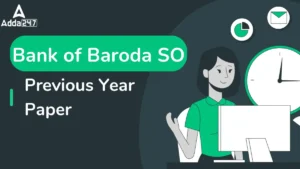Dear Students, English Section is a topic quite dreaded by candidates taking the bank exams. Though the sheer number of concepts and rules may seem intimidating at first, with discipline and the right approach, it is not difficult to master these concepts and their application to questions. Through such quizzes, we will provide you all types of high-level questions to ace the Sentence Correction section of bank exams.
Directions (1-10): In each of the following questions, five statements conveying the same idea are given. Select the one which expresses the idea in the most concise manner and mark its number as your answer. Please note that all of them may be grammatically correct and mean the same but you have to select the most concise way of expressing the idea.
Q1.
(a) Notwithstanding the opposition of many colleagues and the disagreement of other members of the Assembly the minister proposed in full vehemence that he would shortly order the re-opening of all the toddy-shops which are lying closed at present.
(b) Regardless of the opposition of colleagues and members of the Assembly the minister strongly proposed his decision to reopen the toddy-shops which are lying closed.
(c) Regardless of the opposition of many the minister proposed to reopen the toddy shops which lie closed.
(d) Disregarding the opposition of colleagues and MLAs the minister proposed to open again those toddy-shops which are lying closed.
(e) Regarding the opposition’s demand the minister proposed to reopen the toddy shops which lie closed.
Q2.
(a) It was not a one man proposal, nor a minority decision that raised the idea of discontinuing or closing down those public sector companies which are neither feasible, nor viable nor profit making.
(b) To close down the majority of public sectors was the decision mooted by one and all.
(c) It was a proposal and a decision by the majority to close down those public sector companies which are not profit making.
(d) It was not a one man proposal or decision to close down those public sector companies which are neither viable nor profit making.
(e) It was a majority decision to close down the unviable public sector companies.
Q3.
(a) Electricity can be made available to the house holders, business people, theatre owners etc. by introducing the most modern methods which are not tried so far.
(b) Electricity can be distributed to the general public by introducing modern untried methods.
(c) Electricity can be given to all by using modern methods.
(d) Electricity can be distributed to all by using modern and untried methods.
(e) Distribution of electricity can be simplified by using modern method available.
Q4.
(a) Indiscriminate felling of trees is certainly dangerous because cut trees will no longer keep water in their expanding roots or stop water vapour in the atmosphere to cause rainfall.
(b) Felling of trees is dangerous because cut trees cannot retain water or cause rain.
(c) Indiscriminate felling of trees is dangerous because cut trees cannot retain water in their roots or cause rain by stopping clouds.
(d) Indiscriminate felling of trees is dangerous because cut trees cannot retain water in their roots or stop cloud to cause rain.
(e) Indiscriminate felling of trees is dangerous because the possibility of the cut trees retaining water or causing rain is minimized.
Q5.
(a) The habit of drinking liquor of any kind, foreign or others will pave the way for total destruction of many families both rich and poor.
(b) Drinking liquor will cause destruction to families both rich and poor.
(c) The habit of drinking liquor will cause destruction to families, both rich and poor.
(d) The habit of drinking liquor, local and foreign, will cause destruction to families both rich and poor.
(e) Vices like drinking, gambling etc… will lead to the destruction of a family be it rich or poor and will cause immense misery to one and all.
Q6.
(a) Without any doubt and without even the touch of hesitation it can be conveyed to the general public that the present budget with its export orientation will pave the way for a financially well–set nation.
(b) It the present expert oriented budget is implemented to its core, we can surely expect a financially well-set nation.
(c) The public can be assured that the present export oriented budget will create a financially well-set nation.
(d) Without any hesitation, the public can be assured that the present export oriented budget will create a financially well-set nation.
(e) It can be assured that the present export oriented budget will create a financially well-set nation.
Q7.
(a) The mutual confidence between the father of the house and the mother, between the parents and their children, between the master and the servants is extremely necessary and certainly unavoidable if a happy set up should become a reality.
(b) The family will be happy if there is mutual confidence between the parents, between parents and children, and between master and servants.
(c) Mutual confidence among all the members of the family is necessary for happiness.
(d) To set up a happy family mutual confidence among all the members is a must.
(e) A family will stand high only when the members of the family, in all walks of life, exhibit confidence which is hard to break.
Q8.
(a) Entering the field of politics must be done only after a long period period of pre-thinking and observation of whereabouts because success in this field is uncertain and beset will all sorts of troubles.
(b) A lot of pre-thinking and observation are necessary for entering into politics because the way to it is troublesome and success is uncertain.
(c) Pre-thinking and observation are necessary before entering the trouble-some and uncertain field of politics.
(d) A lot of pre-thinking and observation are highly necessary before entering troublesome way to the uncertain field of politics.
(e) Politics is dangerous as a lot of pre-thinking and observation is required before entering its troublesome waters.
Q9.
(a) The imaginative creation of a peat is unlikely to be found.
(b) The objects of a poet’s imaginative creation is unlikely to be found in reality.
(c) The poet employs his power of imagination to create things which are unlikely to be found in the real world.
(d) The poet’s creation is just imaginary and it is unlikely to be found in the real world.
(e) In reality the objects of a poet’s imaginative creation is unlikely to be found in the real world.
Q10.
(a) Mental happiness is an uncommon thing and it rarely blesses those who shun themselves from untiring hard work and constant determination.
(b) Mental happiness is something, which comes only to those who are ready for hard work and constant determination.
(c) Happiness is something, which eludes those who refuse to work hard and without determination.
(d) Happiness comes only to those who work hard with determination.
(e) People who are lazy and do not work hard with determination can never experience happiness as it will elude them forever.
Directions (11-15): In each of the following questions, a paragraph with a blank is given. From the five choices given below, select the sentence which can go into the blank to make the paragraph logically coherent.
Q11. With the breakdown of the joint family system and with more and more couples opting for a single child, a time will come when relatives will become fewer and fewer. [__________]
(a) People will gradually abandon the nuclear family
(b) The role of friends will become even more important then.
(c) Old age homes will flourish with more and more senior citizens joining them.
(d) Family planning will no longer be valid.
(e) Joint family system will gradually return.
Q12. Information technology will usher in a more vibrant and responsive democracy where people are truly empowered. In the context of such an increasingly IT – oriented world we have to increase computer literacy in the country. [__________]
(a) India, with its poor human resource base, cannot take advantage of the revolution that is happening.
(b) Indian firms have to gear up suitably to meet the emerging challenges in the new millennium, as far as software exports are concerned.
(c) Computer literacy in India needs to improve further.
(d) Internet can be used to create and acquire knowledge in ways that would not be possible otherwise.
(e) Access to computer and the internet should be made available to all so that benefits of technology are enjoyed by everyone.
Q13. The recent economic liberalization by the Government has opened the sluice-valves for free flow of foreign consumer goods into the country. Goods from China and other East Asian markets have now flooded the Indian market. [__________]
(a) The foreign goods which are now available in India are of inferior quality.
(b) The bloodless war of the new millennium waged by China could cause greater havoc to this country.
(c) Smuggling of goods has to be effectively prevented, to save the economy.
(d) Indian products are unable to withstand the competition in price as well as quality from these foreign goods.
(e) Chinese goods can never offer a stiff competition to Indian goods.
Q14. Chess will always have limited spectator appeal. [__________] It is too intellectual and far too rigid in its rules and mode of play for the average person.
(a) It is not a game that can be called having fun with.
(b) Chess has some advantages that other sports do not.
(c) Chess is not a sport for egg heads only.
(d) Chess players will always have a limited fan following.
(e) With a little more encouragement chess players will perform better.
Q15. Most people are poor observers, and receive only a vague or hazy impression of objects around them. [__________] But we receive impressions through the other senses too – touch, taste smell and sound.
(a) Impressions perceived through the sense of sight are not capable of a vivid description.
(b) A person who is blind, is a better observer in most cases than a person who is gifted with eyesight.
(c) People cannot make use of their sense of sight in a productive manner.
(d) Most descriptions are confined to what people see.
(e) What we see we tend to believe and sometimes we see what we want to see.
You May Also Like To Read:




 GA Capsule for SBI Clerk Mains 2025, Dow...
GA Capsule for SBI Clerk Mains 2025, Dow...
 The Hindu Review October 2022: Download ...
The Hindu Review October 2022: Download ...
 Bank of Baroda SO Previous Year Paper, D...
Bank of Baroda SO Previous Year Paper, D...





